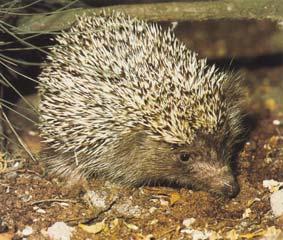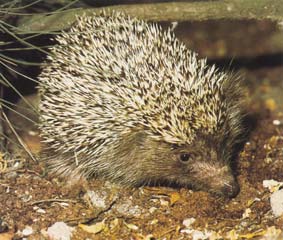Nature: The big sleep

Éanna Ní Lamhna outlines several options for getting through the long cold winter
The clocks have gone back. The long dark evenings have arrived. We have made our first morning trip to the car windscreen with a kettle of water. Yes, winter is here. Our animals are facing into a long winter where food will be scarce or indeed non-existent for some of them. How will they manage?
There are several coping strategies, all of which have their own particular merits. Fly away from it all is the one the insect-eating birds such as the swallows adopt. They have chased summer across the globe and are now basking in the early summer sunshine in Tanzania, Mozambique and surrounding areas. We will probably be in the throes of a general election before we see them again.
Another coping method if your food is unavailable is to eat something else. This is what omnivores like robins, foxes and badgers do. Their digestive systems can cope with fruit, nuts and berries when no spiders, flies, earthworms or roosting birds are easily available. Animals that have such adaptable digestive systems are among the most successful – think crows, magpies, rats, mice, humans even!
But perhaps the most attractive option is to take to the bed until spring comes and food is around once more, as hedgehogs and bats do. Because no slugs and snails or moths and mosquitoes are around in the winter, these two mammal groups have successfully adopted hibernation as a survival strategy. They lower their body temperature by about 30oC down to 10oC. They slow their heartbeat and their breathing rate. It takes very little to sustain them in this state of suspended animation so their body fat is a sufficient resource to keep them alive until April. Moles and dormice do this too, but we have neither of these species in Ireland. Hibernation is only necessary at our latitudes – there's no need for it further south where food is available in the warmer winters and it's much too risky at tundra latitudes where you might very well freeze to death.
Squirrels, on the other hand, don't hibernate. They'd have to be awful eejits to be out collecting and storing nuts all September and October if they were going to be in a hibernating coma until April. Instead, they stock the larder while the trees are having a closing-down sale in nuts. They then have plentiful supplies stashed away to obviate the necessity to go out foraging in inhospitable weather. But hibernating they are not – they are merely languishing indoors in their dreys and dining sumptuously on quality nuts. Come a fine, sunny winter's day, you will see them hopping around the ground in a woodland near you.
